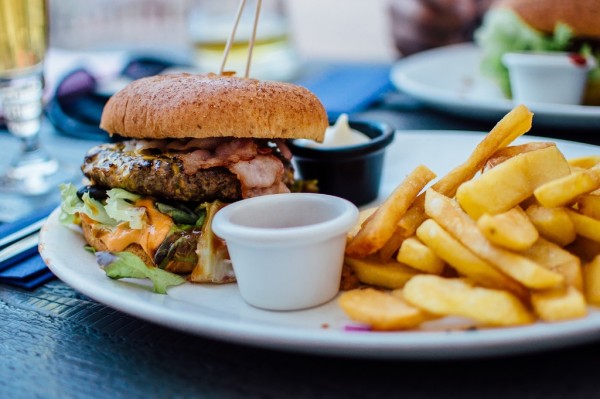5 Foods That May Be Responsible for Skin Inflammation
Inflammation is the body's defense mechanism whereby a person's immune system identifies harmful elements and eliminates them.
Following the elimination of hazardous, foreign objects, the body begins to heal itself. While inflammation can naturally take place, in most circumstances, experts say, food can be the main reason.
This is true in terms of skin inflammation. Studies show that certain foods are responsible for the triggering of inflammatory responses from one's immune system.
Researchers say that you might experience red patches, abscess, and rash if you eat these foods. In most conditions, the rash is typically itchy or provides a burning sensation, leading to the skin's cracking and bleeding.
ALSO READ: Avocado for Weight Loss? Know the Wonders of this Fruit

Fast food products and other fried foods have the high trans fat content that can lead to skin inflammation.
Foods You Should Not Eat
Specific reactions to foods can either be severe or life-threatening, resulting in "anaphylaxis." You might be wondering which foods are causing your inflammation. Read on and find out which foods you should stop eating:
1. Salty Food
Salt may be essential to almost everyone's regular diet. Nevertheless, if one morning, you wake up with your eyes feeling "puffy and botched all over," the popcorns you ate the night before while watching your favorite movie or series might be the culprit.
2. Sugar-filled Food
According to the American Heart Association, men should eat not over nine teaspoons of added sugar each day, equivalent to 150 calories. For women, according to experts, the recommended sugar intake is six teaspoons or 100 calories.
Studies have it sugar-rich foods contain a "high-glycemic index," which brings inflammation to both body and skin. It occurs when sugar supplies add fructose to the body.
DON'T MISS THIS: Why Stress Makes One Overeat or Not Eat at All, and How to Overcome It
3. Dairy Food Products
These foods lead to skin inflammation from time to time in various ways, including "active allergens." Specifically, skimmed milk contains milk hormones that lead to acne and breaking of the skin.
4. Fast Food Products
Fast food products, as well as other fried foods, have high trans fat content. Also known as trans-unsaturated fat, trans fat can lead to skin inflammation. It increases the level of bad cholesterol in the body and lowers good cholesterol levels.
5. Alcoholic Beverages
These drinks are completing social events. But you should know that substances found in alcohol cause skin inflammation. When you drink an alcoholic beverage, it leads your blood vessels to dilate. This then results in facial redness.
Aside from inflammation of the skin, alcohol can lead to dryness and, eventually, liver disease. A study conducted in 2013 looked into evidence to know if drinking alcohol can lead to systemic inflammation.
What the study authors found was that excessive alcohol intake is associated with systemic inflammation. Meanwhile, ethanol in alcohol improves "keratinocyte activation and proliferation." As a result, there is a possible development of psoriasis.
What to Eat to Improve Skin Health
Foods rich in trans fat, refined carbs, sugar, and sodium are tasty and appetizing. This is one of the main reasons people love to eat junk foods.
The problem, though is that, they contribute to the increase in the risk of skin inflammation. To prevent this from happening, start avoiding foods like pastries, red meat, candy, fried foods, and the other foods mentioned earlier.
To help with your skin health, eat foods that are rich in anti-inflammatory properties like spinach, kale, fish, nuts, and seeds, among others.
IN CASE YOU MISSED IT: Is Excessive Exercise Linked to Eating Disorders? Here's What Studies Say
Check out more news and information on Skin Inflammation on MD News Daily.
Oct 12, 2020 08:40 AM EDT





